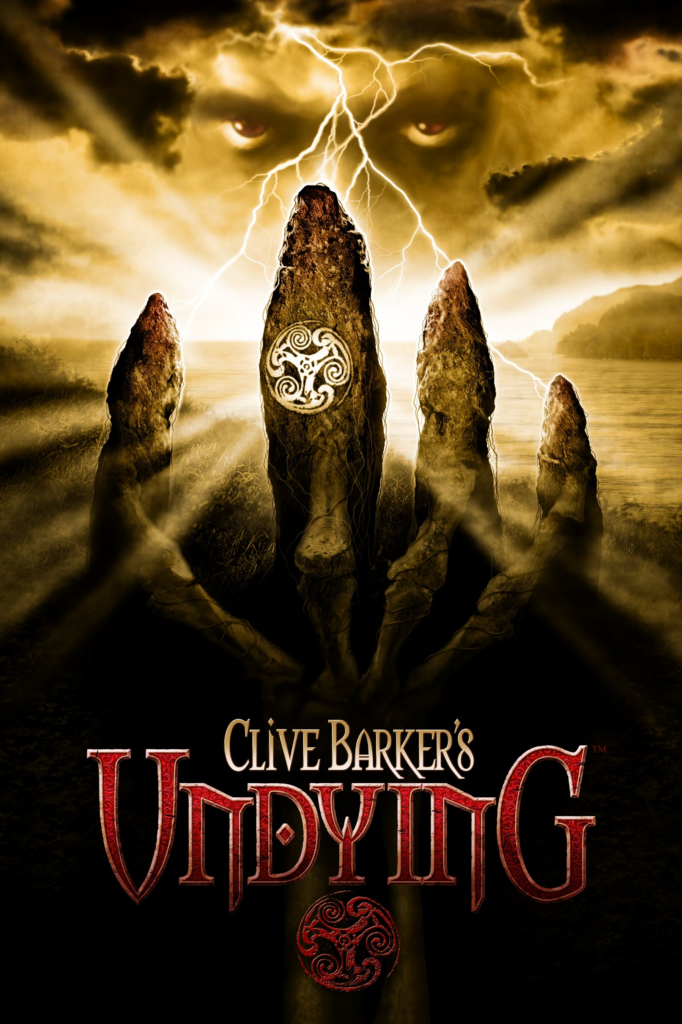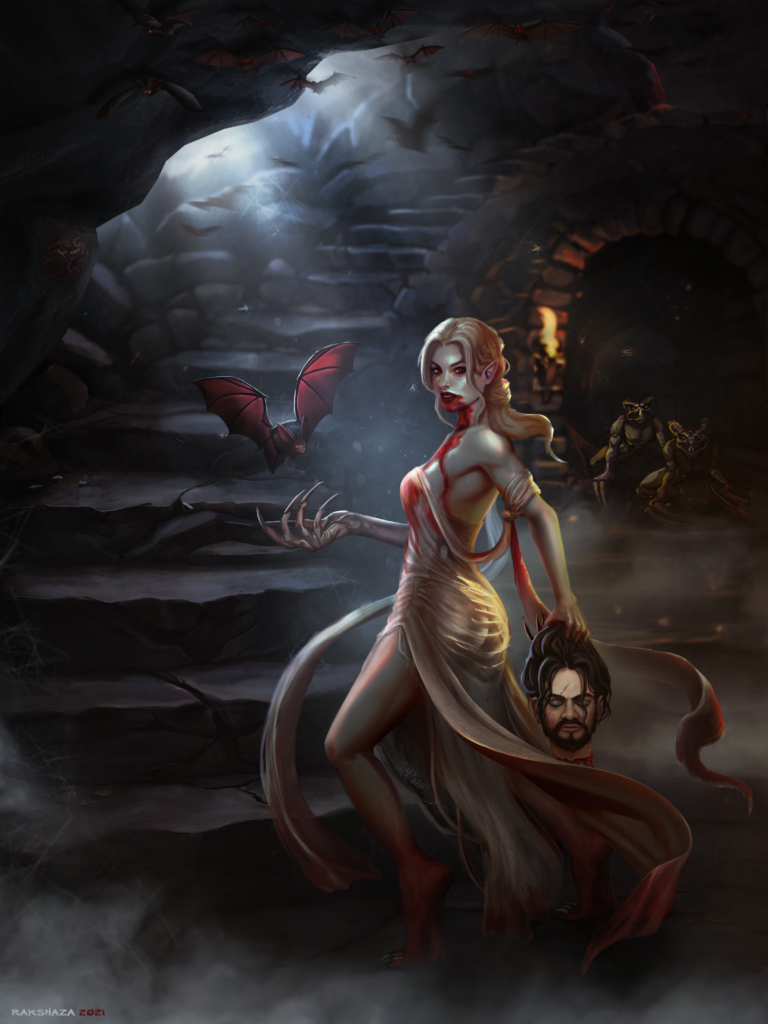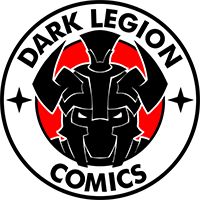RE:Play Clive Barker’s Undying

“[Undying]’s a dark fantasy with lots of levels, lots of realities in it. It’s not horror in the sense of Hellraiser. It’s horror which is very bloody, very graphic, with plenty of monsters, no question; but also a big adventure level in it. There is the sense, as you are visiting different dimensions and alien cities, that a monster in an alien city is a different thing than a monster sitting in your kitchen sink!” – Clive Barker
Clive Barker started out in the British theater in the 1970s and in keeping with the traditions of that august institution, worked as a part-time rent-boy to make ends meet. He tried acting and directing but it was in writing where his talent made itself known. The theater never really took off for him, but his work in novels did. He hit it big in the 1980s blending horror with an eroticism that was flavored by extreme masochism. Blood and pain and the desire for these things were explicitly evident in his stories.
His movies were medium-budget and financially successful. Hellraiser, Candyman, and Night Breed became mainstays of pop culture horror in the late 80s and early 90s. Night Breed was a very successful comic book title for a few years. I was never into his books, but I did see the movies. They were decent horror and in keeping the zeitgeist of the Nineties.
Barker is a good artist; he frequently illustrated his own books, and this gave his work a distinct visual attribute. That would be a help with a new project that had just come his way.
DreamWorks Interactive had been developing a new horror FPS game about a super-powered monster hunter named Count Magnus Wolfram.* The bones of the game were already there. Barker was brought in to put flesh on them, (gag! You scribble about Barker for a couple of paragraphs and you start writing phrases like that). Say what you like about Barker, he can definitely spot garbage when he sees it. Barker came up with a new character named Patrick Galloway.
Galloway was a vanilla mortal human whose job it had been to debunk the occult for the British Army in WWI.
This was actually kind of a thing back then. Look up the “Ghosts of Mons.” I’ll say this about that. Things happen in combat that don’t happen anywhere else. Odds are defied in ways that are statistically impossible. It’s a place where reality is stretched to the breaking point. I don’t know what happened at Mons. I wasn’t there.**
Back to the game.
Interactive horror games like Ripper, Phantasmagoria, and 7th Guest had all used live actors to those games’ detriment. The limitations of 1990s technology inflicted violent tonal shifts on those games whenever any kind of action took place. A character would be calm in one frame and in a psychotic rage the next. Maintaining tone is critical in horror and the live actors couldn’t do it with that technology. It just wasn’t possible. Rendered animation changed all that and the Unreal engine had capabilities compared to the Build or Idtech engines that were in a word “unreal.”
The other thing this game brought to the party was the quality of its narrative. I’m not much for Clive Barker’s lifestyle but I can’t deny his skill as a wordsmith. He didn’t just put his name on the label or throw in a few bits of dialog, he appears to have been active in the art design and story development as well as the dialog.
Make sure you have time on your hands when you fire this one up because you can NOT get out of the animation locks. You get to sit through them each and every time. Esc will pause the game but that’s it.
Patrick Galloway, a fugitive from his native Ireland (and for once it’s not for the usual reason) is returning to his homeland, despite facing the serious possibility of getting hanged. His former CO during the Great War, Jeremiah Covenant, has begged his help because Patrick Galloway is the only man who can help.
After you wade through some opening cut scenes that you cannot skip, you do some walking around at the gigantic and creepy-as-hell Covenant House. You meet your dying friend Jeremiah. He is a man under a curse. His whole family is dead. He’s next. But while his brothers and sisters are dead, they are not gone.
The first ghost you run into is Jerry’s brother Aaron. Aaron is a ghost and an asshole, that is basically his whole thing.
In true nineties FPS fashion, the game starts with Patrick being pretty weak while you learn the game. You just have a pistol and no knowledge of a country estate house that is way bigger on the inside than it is on the outside. No, wait, you also have the Stone of Gaz…zilljab..ar(?) Magic Rock. The Stone of Magic Rock lets you see things that are only visible in the unreal world, it also has a power of infinite knockback. Use that too often and the Beast of Magic Rock appears and eats your face off, so don’t go overboard on that.
First thing you run into are the Howlers, who are kind of a frog-ape-dog. Mele monsters that are quick and do a lot of damage. There are three different power levels to them that are denoted by palette swaps. They are the first enemy you encounter, and they let you know how tough this game is going to be.
The first mission accomplishes nothing, it’s just to familiarize yourself with the gameplay. No tutorials back then, you learned by playing.
After that, you get your first spell, which is Ectoplasm, and you are on your way. The game has some oddities from twenty-two years ago. Not all the keys are bound in familiar ways. “R” doesn’t reload your weapons, that’s “alt.” Guns are fired from your left hand and spells are performed with your right. Between guns and spells, you have twenty weapons to choose from and not enough number keys. Undying solved that problem by using a weapons wheel and I don’t remember ever using one before this game came out. And you could use both spells and guns at the same time. Speargun and lightning work very well together but your most important spell is Shield, amplify the hell out of that thing when you get it.
You die a lot in the early missions, but less so the more powerful you gain. The weapons aren’t the usual Doom clone choices. There is no machine gun, no rocket launcher, and no BFG. But combining weapons with spells makes up for that. Toward the end, you can fly depending on the dimension you are in.
Perhaps it would be more accurate to call this game macabre adventure than actual horror. Most of the scares are jump scares and you don’t have the kind of tension build-ups that creating fear requires.
The first of the Covenant siblings (which is to say Bosses) you have to deal with is Lizabeth. The youngest and hottest of the siblings, although now her jaw drops down her chest and she has a drive to eat living human flesh, but I’ve had worse girlfriends.

Her chapter is the longest although you are learning about the game’s combat and advancement system during this chapter. You have to go to the ruined monastery to find a magic weapon called the Scythe of the Celts. It’s the only thing that will take down the Covenant sibling revenants. Then you find out it disappeared centuries in the past, so you travel back in time to steal it.
You kill a bunch of monks to get it, which seems a little unfair to me because once you get back to the 1920s you have to fight their skeletons too. The ones you made into skeletons by killing them in the first place. If the game had a stealth mode, I would have used it, but it doesn’t. So, you Boom-stick the whole monastery to get the Scythe. Then defile their earthly remains when you get back to the present. You are considered the good guy, remember?
I really felt bad about those monks. They had a holy mission to protect the Scythe because it was needed for a ritual that would end the world.
Right before you have your boss fight with Lizabeth, she gives you the first of your clues that Jeremiah has not been on the up and up with you.
As the game progresses you find out that there is an ancient stone circle on the island. You know, the kind you should stay the fuck away from!? One day when they were children Jeremiah took a book of occult knowledge from their father’s library, brought his siblings to the circle, and read certain passages from the book that doomed all of them.
The stones acted as a seal that kept (basically) Cthulu bottled up. The ritual Jeremiah performed transferred those seals to the Covenant Children. Which is why they become revenants when they die.
Galloway also has to fight his oldest frenemy, Otto Kiesinger in the dimension of Onerous. Otto knows what’s up even if Patrick is clueless.
After you kill Lizbeth, (the hot revenant with some red flag personality issues) you have the impression that killing all of the Covenant Children will take an equally long time. And it doesn’t.
You make relatively quick work of them. Ambrose is the easiest to deal with because his followers are all human Tresanti cultists. So, you don’t need magic anything to grease them out. In fact, I think Ambrose might still be ‘alive.” The boss fight with Ambrose is pretty easy because he steals the Stone of Magic Rock from you and overuses it, so the Beast of Magic Rock shows up and attacks him.
Aaron the Asshole Ghost is pretty quick to kill. Just let him stick one of his hooked chains in the wall and behead him with the Scythe of the Celts.
Note: All of the Covenant Children can only be killed with the Scythe.
Bethany is the most powerful of them. Or at least she’s supposed to be but even with her own dimension as her kingdom, she takes too little time to kill. And the fact that she is the queen of her own dimension, Eternal Autumn, made her easy takedown very disappointing.
After Lizbeth, they are all just a little too easy. The game only takes six hours if you know what you are doing.
This strongly indicates to me that the game had major cuts made to it during development. Don’t get me wrong this game is not an unfinished disaster like Redneck Rampage or Blood II. But this thing definitely should have been more than what it was. There were promises to the player that simply were not kept.
Once you kill Bethany you go to the stone circle and find Jeremiah. Kind of surprising since Ambrose beheaded him a couple of bosses ago. He then does his villain monologue about what a fool you are because he died in the Great War saving your worthless life and now his plans are coming to fruition because of you. Bwah-ha-ha-ha.
And you chop his head off in irritation.
Oops.
When you kill the last of the Covenant Children with the Scythe, the seal is broken and Cthulu pops out of the circle, and he is your final boss. Honestly, he isn’t that bad as bosses go once you learn his weak spots.
I think the game’s budget got cut because DreamWorks was getting ready to sell their game studio. Tragically it was sold to EA Games. Like anything good from the Nineties, once the Borg assimilated DreamWorks Interactive everything that made the studio good or unique was sanded away. I honestly don’t know why they bought all those studios; they never did anything with them.
When the game launched it pushed the technology of its day to the limit. There were frequent CD swaps and the various scenes took for-ev-er to load. It might not have been ahead of its time but it pushed things as far as they could reasonably go in 2001.
Undying while an absolute gem of a macabre adventure game didn’t sell anywhere near good enough to rate a sequel. It was released in February of 2001 to good and well-deserved critical reception, the sales were slow but steady. However, they cratered completely in September of that year when real-world monsters made their presence felt.
Horror FPS had had some problems before then, too many Slav-Jank releases in the late Nineties had left players feeling burned by the genre. The FPS game in general was running into major issues. The biggest was that consoles had begun to dominate the market and the games would start being built around the fundamental limitations of those controllers.
The PC Shooter has had a renaissance since those dark days and a lot of games that were overlooked in their day are finally getting an audience. The Undying is available from GOG for the very reasonable price of $6.00.
The Dark Herald recommends with Enthusiasm.
*You actually see Count Magnus in the first few minutes of the game. He was the leader of the Tresanti cultists in WWI.
**And anyone that says I was, is wrong, lying, or completely insane. Reports of The Dark Herald fighting the Sewer Orcs of New York City in August of 1914 are vastly more credible. I couldn’t be doing both at the same time…could I? I’m really asking here because I’m not sure myself.

